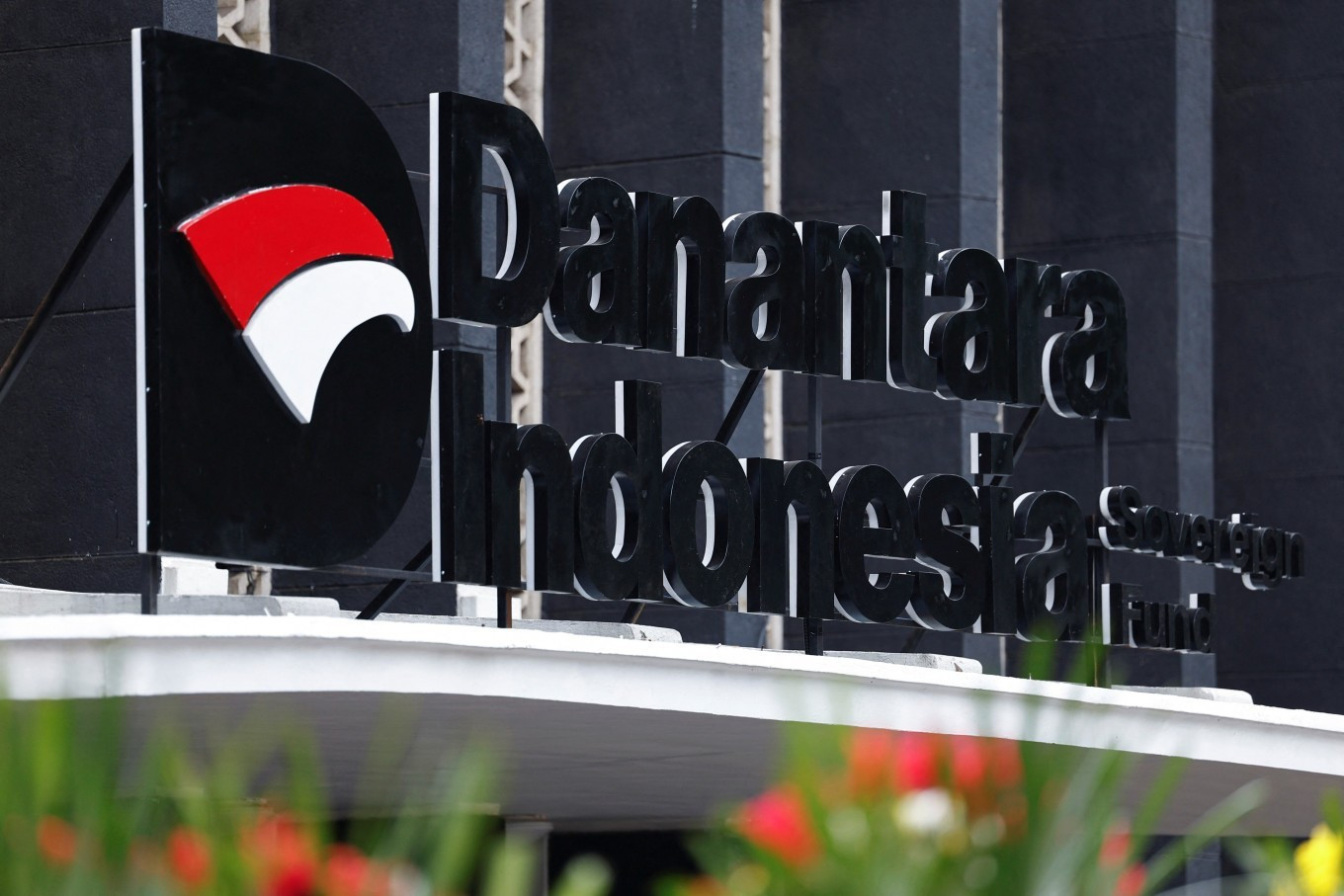News
Patriot Bonds oversubscribed amid questions of compulsion
Tenggara Strategics September 9, 2025 The name Danantara Indonesia is pictured in front of the state asset fund's headquarters in Jakarta on Feb. 28, 2025. (Reuters/Willy Kurniawan)
The name Danantara Indonesia is pictured in front of the state asset fund's headquarters in Jakarta on Feb. 28, 2025. (Reuters/Willy Kurniawan)
The Patriot Bonds, a debt instrument issued through Indonesia’s state asset fund Danantara, have attracted demand exceeding the amount offered, despite offering a much lower coupon rate than comparable government securities. Some analysts point to quiet pressure from the Prabowo Subianto administration as a factor in the oversubscription, raising concerns that the bond’s “voluntary participation” label masks market distortion and risks crowding out private financing.
According to Danantara, the Patriot Bonds are intended to finance priority national programs, such as the energy transition, and address structural challenges, including the projected rise in the elderly population by 2045. Positioned as an “impact investment” tool, the bond reflects President Prabowo’s directive to create alternative financing schemes based on voluntary participation and collective responsibility through Danantara and to move the state budget toward greater balance.
At launch, two Patriot Bond series will be issued, with maturities of five and seven years and a 2 percent coupon rate, together totaling about US$3.1 billion (Rp 50 trillion). This yield is far below Bank Indonesia’s 5 percent benchmark interest rate and below the roughly 6.1 percent coupon on comparable government bonds. No public feasibility study has been released. Given that Indonesia has already issued roughly Rp 600 trillion in sovereign bonds in 2025, some economists warn the Patriot Bonds may contribute to a crowding-out effect, reducing financial flexibility for other market players.
Despite its framing as a voluntary instrument, the bond is being marketed through a private placement scheme that heavily targets Indonesia’s largest conglomerates. Proceeds from the initial issuance are partly allocated to waste-to-energy projects intended to address the country’s growing garbage crisis. Such projects, however, generally require far longer than seven years to generate returns, heightening the risk of debt rollover even with Danantara’s $1 trillion in state-owned enterprise assets under management as backing.
The bond’s low expected return on investment further raises doubts about the underlying projects’ profitability. Analysts have also flagged the lack of an independent bond rating and the likelihood of the government using its influence to secure major investors, echoing tactics previously employed under President Joko “Jokowi” Widodo to finance the future capital in Nusantara.
Complicating perceptions of voluntariness is the rumor surrounding Bank Central Asia (BCA). Reports suggest the government may seek to acquire BCA from the Djarum Group, citing lingering controversies related to Bank Indonesia Liquidity Assistance (BLBI) from the 1997 Asian Financial Crisis. Danantara has denied any acquisition plans, though some members of the House of Representatives have lent credence to the speculation. Danantara has stated that both the Djarum and Barito Group owners have shown an interest in the Patriot Bonds, with Djarum Group reportedly ranking among the leading prospective buyers.
Whether or not acquisition rumors are linked to bond participation, the nationalistic framing of the Patriot Bonds allows officials to view non-participation as “unpatriotic,” potentially influencing the distribution of state incentives or regulatory favors. Moreover, with maturities of less than 10 years, questions remain as to whether the Patriot Bonds can genuinely support the long-term programs they purport to fund.
What we've heard
An executive in the banking sector said that the oversubscription of the Patriot Bonds was a result of pressure from the government, exerted on major conglomerates to ensure the program’s success. He noted that the concept of the Patriot Bonds still leaves a host of unanswered questions among conglomerates. One of them is the absence of a state guarantee, since all the funds will be placed in Danantara.

